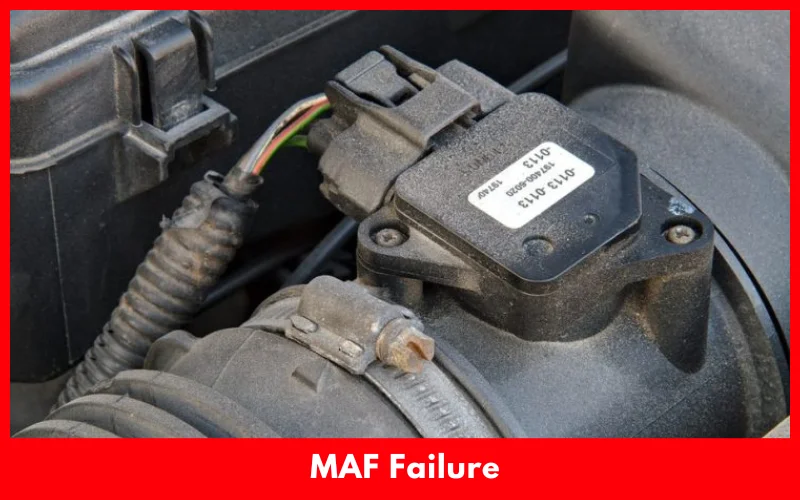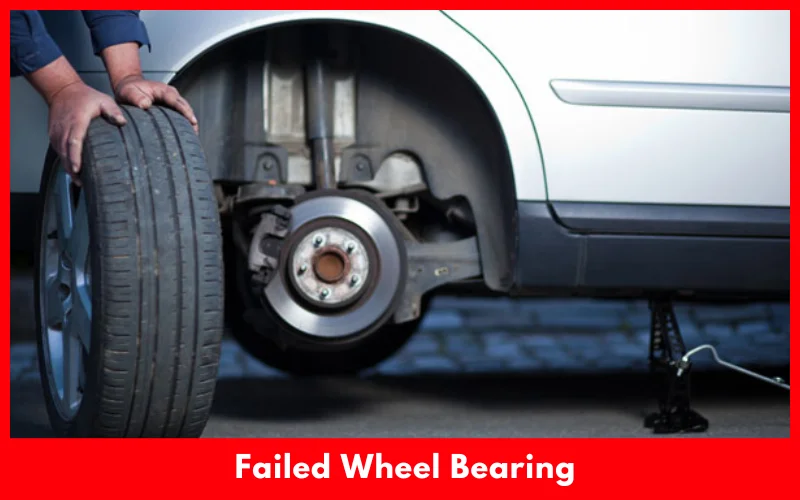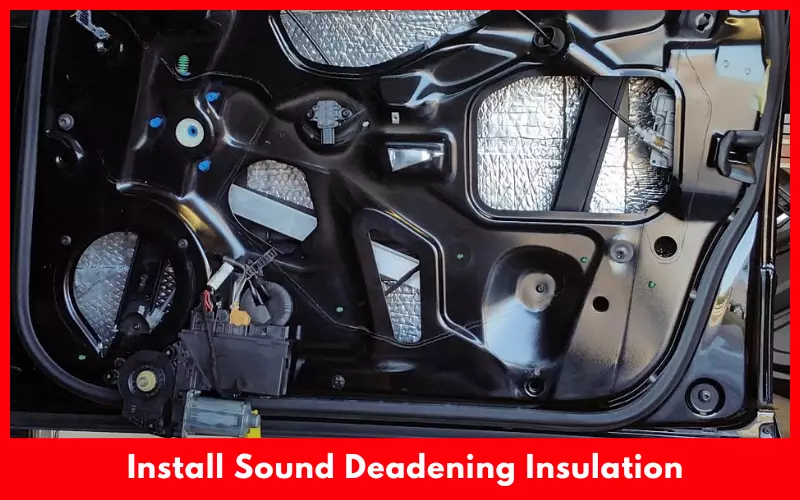It’s quite irritating to drive a car that sounds like lawn mower particularly as you can’t wear air protection headphones. Hearing loud noises can make the driver and passenger panic as well. So if you want to discover the underlying source of loud noise and reduce this embarrassing sound, read on.
I have listed the most potential reasons that car sounds like lawn mower along with simple solutions and approximate repair costs. We have also discussed some tricks to help you make car driving peaceful.
Article Summary
Why Does My Car Sound Like A Lawn Mower?
If your car sounds like a lawn mower, there can be lots of things gone wrong including the exhaust and tires, bearings and transmission. Each problem has a unique way to diagnose and solution.
1. Exhaust Leak
Exhaust carries very hot chemicals that put stress on them. As a result, the exhaust expands and shrinks and can produce a sound like a lawn mower. If this is the reason, you’ll frequently hear the lawn mower-like sound during starting or accelerating the car.
To determine the leak, you have to check the exhaust system physically. If the exhaust gets leaks, you’ll feel harmful gases in the air and fumes in the cabin.

Another way to determine the exhaust leak is that walk around the car keeping it parked with the engine running and brake on. Try to find out the location of the noise. You may also need to crawl down around the car.
Pro tips: there is an exhaust pipe running the engine to the tail pipe at the backside of the car. You can check this pipe at the first step. Another pipe you can check is the flex pipe that is placed under the engine. You can also check the catalytic converter, but be careful as it gets extremely hot.
While you can fix the flex pipe at a relatively costlier price, the catalytic converter may cost you the most.
2. Timing Belt
If your car’s timing belt gets loose or worn out, it can produce a loud sound like the lawn mower. To fix this problem, simply tighten the belt or replace it if it becomes unusable. Otherwise, it can cause damage to the other component of the engine and cost expensive repair.
3. MAF failure
If your car’s engine sounds like a lawn mower and the check engine light comes on at a time, the MAF failure can be responsible. The light can be solid at first and may start blinking and shudder pretty hard.

It can also throw up a solid CEL and your car may run rough. To determine the problem, check the ignition coils. You can use an OBD 2 scanner to check the source of the blinking. To fix the problem, you can run codes or flatbed to repair if you can’t diagnose. It can happen due to a misfire on the cylinder.
4. Blown Head Gasket
The head gasket keeps engine oil and coolant from leaking into the cylinders and other parts. If the engine becomes extremely hot, it can become boil and break the head gasket. As a result, the blown head gasket can produce a very irritating loud sound like a lawn mower.
It can also let harmful gas into the vehicle. The car can slow down and the engine can get damaged and cost expensive repair. To solve this problem, take your car to an expert mechanic as it may need to replace the gaskets.
If you want to keep the head gasket in good condition, make sure the engine has the right amount of coolant.
5. Failed Wheel Bearing
Wheel bearings reduce friction while the car moving. However, wheel bearings are prone to rust particularly if you don’t grease them regularly. Hence your car may produce a sound like a lawnmower during turning and making heavy movement.

Wobbly steering wheel, rough tire wear, and the car pulling to one side during driving are the common sign of damaged wheel bearing. A broken wheel bearing can block the car’s axle and make mobility impossible. It can end up causing harsh accidents.
To solve this problem, replace bad wheel bearings. Lift the car from one side and turn the opposite wheel slowly to hear a cracking metallic or squeaking noise. If you hear any noise, the wheel bearing gets damaged and requires replacement.
6. Worn-out car tires
Older tires wear out and can’t withstand friction like the new ones. As a result, it can make a growling sound like a lawn mower. Damaged tires can also reduce road grip and damage the brake system.
Apart from hearing sounds like lawnmowers, you can have a hard time controlling the steering, particularly on slippery roads. To fix this issue, check your car’s tire functionality. Replace the tire if it wears out.
7. Old Differential Fluid
Differential fluid reduces friction in the gearbox and needs to change every 30,000 miles depending on the car’s manual. The aged differential fluid can also produce noise like a lawnmower and overheat the gearbox. Hence the gearbox can break down and prevent you from making turns when driving.

To solve this problem, first, determine whether your vehicle uses front or back differential fluid. Then change the gear to the location of the fluid and listen carefully. If the fluid aged, replace it. You can also prevent this problem by changing the fluid regularly and on time.
8. Engine Misfire
Your car’s engine can misfire if its cylinders fail to create power. The cylinder can be due to plenty of reasons including a faulty oxygen sensor, blocked spark plug, and clogged fuel injector. Hearing sound like lawn mower is also a sign of an engine misfire.
Driving with an engine misfire can stop your vehicle suddenly and cause catastrophes. To diagnose the engine misfire, listen to your vehicle’s sound. If you hear an unfamiliar sound, it’s the engine misfire. Since an engine can cause a misfire due to plenty of reasons you should take the aid of an expert to solve the issue successfully.
9. Spark Plug Issues
Spark plug ignites the fuel and mixture in the engine. If it gets damaged, your vehicle can sound like a lawnmower. The common sign of a faulty spark plug is the rough running of the car and hearing unusual noises. If your car spark plug gets damaged, you must replace it with an expert mechanic.
Some Effective Ways to Reduce Loud Car Noises
If your car’s engine is in optimum condition and other components are okay, it shouldn’t produce any unusual noise. Luxury cars can effectively reduce the number of decibels to make driving smooth and quiet. However, you won’t have to run a fancy car to enjoy comfortable riding.
Along with troubleshooting for those potential reasons, making some simple changes can turn your noisy car into a peaceful one.
Make Sure the Major System Functioning Properly
If you want to reduce the noise inside of the car’s cabin, direct work on the source. If you hear clunking, grinding, squealing, scraping, or rattling noise when idle or running the car, one of your car’s parts isn’t functioning properly.
The engine, exhaust system, and suspension system can be responsible. In addition, make sure the car has enough oil and you have changed the fluid regularly.
Check the Car’s Sound Reducing Parts
The most cars come with sound reduction device to keep the noise level as low as possible. Make sure your car’s device is functioning properly. The car’s manufacturer installs flame-retardant pads under the hood to reduce engine heat and noise.
These thick pads absorb sound before entering the cabin. In the auto repair shop, sometimes mechanics remove the damaged pad instead of repairing or replacing it. So it’s worth making sure your car’s pad is in place and working properly.
Other components are rubber windows and door seals. If these weather strips are damaged or misaligned, they can leak water, air, and noise. So check these rubber components and repair them if required.
Install Sound Deadening Insulation
Sound-deadening insulation is one of the key differences between luxury cars and baseline economy cars. However, you won’t have to be stuck with loud noise even if have an economy car. B-quiet and Dynamat supply sound-reducing materials, particularly for cars.

So you can buy and install sound wave absorbing pads in the firewall, floor, and door cavities to enjoy great improvement in decibel reduction. You can also install sound mats to the headliner and trunk to get extra results. However, you may require do-it-yourself skills and effort to get access to these areas and make your ride quiet.
How Much Does it Cost to Fix a Ticking Engine?
The noise reduction cost of a car varies depending on the source of the problem, the locality, diagnosis, and labor charges. The charge also depends on the auto repair shop you go to repair the car. In Repairpal, you may cost around $88 and $144 for diagnosing the noise problem.
Below is a table of the approximate cost of repairing various components of the vehicle:
| Components Name | Approximate Cost |
| Oil change | $50 to $150 |
| Synthetic oil filter | $65 to $125 |
| Conventional oil filter | $35 to $75 |
| Timing belt | $400 to $1000 |
| Spark plug | $115 to $200 |
| Bearings | $900 to $1500 |
| Loud exhaust | $150 to $400 |
| Bearing issues | about $350 |
| Worn Out Tires | $110 to $750 |
| Faulty Head Gasket | $1,000 to $2,000 |
| Loose Belts | $150 to $200 |
| Engine Misfiring | $100 to $1000 |
FAQs
Why Does My Car Sound Like A Lawn Mower when I Accelerate?
If your car sounds like a lawn mower when accelerating, the exhaust system may get a leak. Worn or loose pistons may also cause this noise. Whatever the reason is, take the car to the mechanic to diagnose and fix the problem.
Why Does a Car Sound Like a Lawn Mower when Idling?
Sound like a lawn mower and rough idling at a time indicates a damaged spark plug. In addition, you can also experience engine jerks or rough runs while driving.
Car Sounds Like a Lawn Mower and Stops
If your car sounds like a lawn mower and dies, the cylinders may not fire. It can happen due to faulty ignition coils, bad spark plugs, or simply the car getting older.
Final Words
Hope you understand why your car sounds like a lawn mower and how to reduce the irritating noise. But after hearing the loud sound, don’t get panic and bring the worse scenario.
Instead, try to diagnose the underlying source at your home garage or take the car to the nearest auto repair shop. Don’t overlook this sound like a lawn mower. Remember, the more you’ll delay solving the problem, the repair will be the more expensive.

